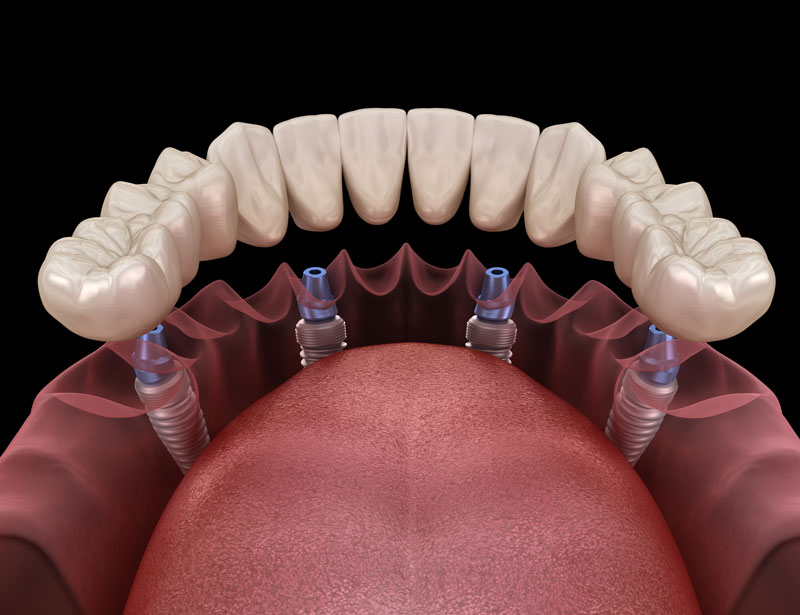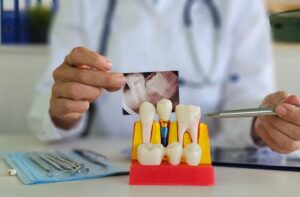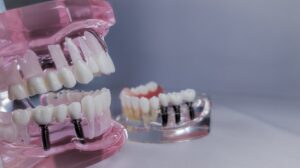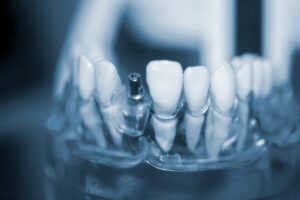If you’re missing many teeth or tired of unstable dentures, implant supported dentures can give you a stronger, more natural-feeling smile. This guide explains who benefits from implant supported dentures, how they work, the types available, and practical next steps for implant supported dentures mentor oh so you know what to expect.
What are implant supported dentures and how do they work?
Implant supported dentures use small titanium posts surgically placed in the jaw to anchor a denture. The implants bond with bone and act like tooth roots to hold a removable or fixed prosthesis firmly in place. This differs from traditional dentures that sit on the gums and rely on suction or adhesive.
With implant supported dentures mentor oh, patients usually see big improvements in stability, chewing power, speech, and comfort. Implants also help preserve jawbone by providing the stimulation the bone needs, reducing the bone loss that often follows missing teeth.
Types of implant supported dentures Mentor OH
Removable overdentures
Removable overdentures typically use 2–4 implants with locator or bar attachments. The denture snaps on and off for daily cleaning. These cost less than fixed options, make hygiene easier, and still deliver much better function than standard dentures.
Fixed hybrid (All‑on‑X) prosthesis
Fixed hybrids (often called All‑on‑X) use 4–6 or more implants to support a permanent bridge. The prosthesis is not removed by the patient and feels most like natural teeth. Many people can get immediate function—temporary teeth placed the same day as surgery—so they leave with fixed teeth.
Advanced options for severe bone loss
When jawbone is limited, specialized implants offer solutions. Zygomatic and pterygoid implants anchor into stronger bones in the cheek or upper jaw. Transsinus and subperiosteal options support a prosthesis when traditional implants aren’t possible. These are advanced approaches designed for complex cases.
Who is a good candidate for implant supported dentures Mentor OH?
Good candidates include long‑time denture wearers, people missing many teeth, or anyone who has trouble chewing or speaking with regular dentures. Patients with bone loss who want fixed teeth are often candidates because modern techniques can work around limited bone.
- Common candidates: denture wearers, multiple missing teeth, trouble with chewing or slippage.
- Factors that can affect candidacy: heavy smoking, uncontrolled diabetes, certain medications (like high‑dose bisphosphonates), and poor overall health.
A CT scan is essential in planning. It shows bone volume and anatomy so the surgeon can choose implant size and placement and determine if special implants or grafting are needed.
Treatment steps and timeline for implant supported dentures Mentor OH
Free consult and CT scan
The first visit reviews your health, goals, and current denture. A CT scan maps your jaw in 3D to check bone and nearby nerves or sinuses. Many practices offer free consults and CT scans so you can learn options without upfront cost.
Planning and digital workflow
Digital planning speeds up accurate results. Facial scanners, intraoral scans, and photogrammetry capture your anatomy and bite. The team designs the prosthesis and a surgical guide on the computer, which helps place implants precisely. This reduces surgery time and improves fit.
Surgery, immediate teeth, and healing
Surgery day usually takes a few hours. If eligible, you may get temporary teeth the same day (immediate loading). Otherwise, implants are allowed to heal for a few months before the final prosthesis is attached. Expect follow‑up visits in the weeks and months after surgery to check healing and adjust your temporary or final teeth.
Cost, recovery, and what to expect long term
Costs vary by number of implants, need for bone grafting or special implants, type of prosthesis, and lab work. Removable overdentures are generally less expensive than fixed hybrid bridges.
Recovery: expect swelling and soreness for a few days, manage pain with prescribed or OTC meds, and follow a soft diet initially. Most patients resume light activity within a few days and normal function over weeks to months.
Long‑term care: maintain excellent oral hygiene, visit regularly for maintenance, and be prepared for occasional repairs or relines. Implants can last many years with proper care.
Why choose Dr. Michael Fioritto for implant supported dentures Mentor OH
Dr. Michael Fioritto is one of only about nine board‑certified implant specialists in Ohio. He treats complex cases, including patients told they “have no bone,” using zygomatic, pterygoid, transsinus, and subperiosteal techniques. His practice uses facial scanners, intraoral scanners, and photogrammetry for a fully digital workflow. Dr. Fioritto also teaches local dentists and labs the All‑on‑X digital process.
For patient convenience, out‑of‑state patients can meet Dr. Fioritto the day before surgery and return home the day after. Postoperative checks can be done with the referring dentist, with a final check back at the Mentor office. Free consultations and CT scans are offered to help patients explore options with no pressure.
How to get started with implant supported dentures Mentor OH
To prepare for your free consult bring your medical history, a list of medications, and your current denture (if you have one). Call to book the free consult and CT scan; staff can explain financing and insurance steps during the visit.
- Bring: medical history, current denture, questions about goals and timeline.
- Book: call or use online scheduling to reserve a free consult + CT scan.
- After the first visit: you’ll get a treatment plan, cost estimate, and timeline to decide next steps.
Ready to learn if implant supported dentures are right for you? Schedule your free consult and CT scan to get a personalized plan for implant supported dentures Mentor OH.






